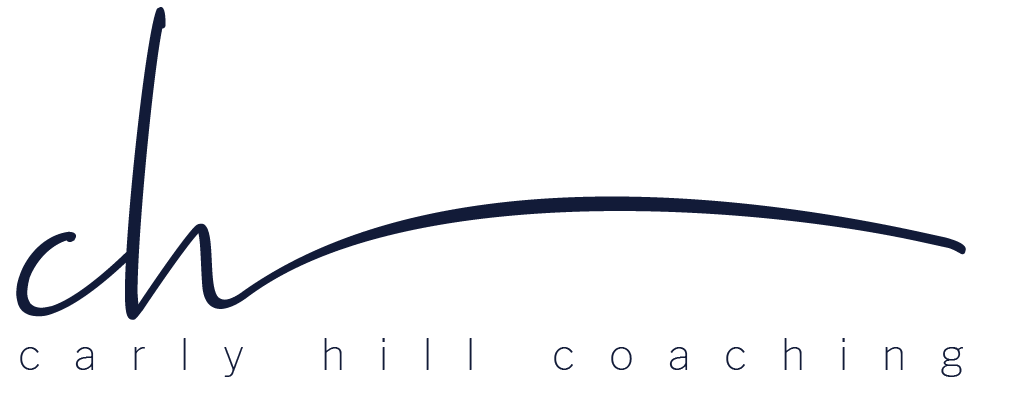Carly Hill Takes you From Therapist to Coach with 3x the income
Key Strategies for Coaching Framework Development That Works

FSDAVCFEBFEVSDDVFSD

FSDAVCFEBFEVSDDVFSD

FSDAVCFEBFEVSDDVFSD
Understanding the Basics
Why Structure Matters in Coaching

A well-defined coaching framework provides direction and consistency, ensuring clients receive structured guidance. Without a clear system, sessions may lack focus, making it harder for clients to track progress. When a coach follows a structured approach, they can tailor sessions to individual client needs while maintaining a logical flow. This clarity helps clients feel more secure in their journey, knowing that each session builds on the last.
Therapists moving into coaching often find that a structured coaching program improves client engagement. Establishing a plan with measurable steps allows clients to see tangible results, reinforcing their commitment to the process.

Key Elements of a Coaching Framework
A results-driven coaching framework consists of clear goals, actionable steps, and measurable outcomes. It helps create a roadmap for clients and guarantees consistent progress. By structuring sessions around specific objectives, coaches can guide clients through a logical progression that leads to meaningful change. This approach also allows for the identification of obstacles early in the process, making it easier to adjust strategies as needed. A strong framework acts as a foundation, helping both the coach and the client stay on track and measure success effectively.
Setting defined objectives at the beginning of the coaching relationship aligns client expectations with achievable milestones. This builds confidence and trust in the coaching process. Clients who start with clear goals are more likely to stay engaged and committed. Establishing a detailed roadmap provides them with a sense of purpose and direction, reducing uncertainty.
Regular assessments and feedback loops allow for adjustments, ensuring the coaching plan remains relevant and effective. Structured coaching programs provide flexibility while maintaining a focused approach.
Choosing the Right Coaching Methodology

Various coaching methodologies offer unique approaches to structuring sessions. Cognitive-behavioral techniques, goal-oriented coaching, and strengths-based models are commonly used to achieve client success. Each methodology brings its own strengths, making it important for coaches to choose an approach that aligns with their philosophy and client needs. For instance, cognitive-behavioral techniques help clients identify and change limiting beliefs, while goal-oriented coaching focuses on actionable steps toward specific objectives.
Therapists transitioning to coaching can merge familiar therapeutic approaches into their coaching style. Applying evidence-based methods improves credibility and strengthens coaching effectiveness. By leveraging techniques they have already mastered, therapists can create a smooth transition into coaching without feeling like they are starting from scratch. For example, solution-focused therapy skills can be tailored to coaching by emphasizing client strengths and future possibilities rather than past challenges.

Selecting the right coaching methodology depends on the client’s needs and goals. A flexible, customized approach establishes that the framework aligns with diverse coaching scenarios. Rather than relying on a one-size-fits-all model, coaches should assess individual client preferences, learning styles, and desired outcomes. Some clients may thrive with direct, solution-based coaching, while others may need a more reflective, exploratory process. Tuning the approach accordingly can create more meaningful client engagement and long-term success.
Carly Hill Coaching helps therapists identify effective methodologies, providing guidance on how to build structured coaching programs tailored to their practice. Through specialized training and mentorship, new coaches can gain confidence in selecting and applying the right techniques. This support helps therapists transition smoothly into coaching by giving them the tools to develop their own unique approach while ensuring a strong foundation in proven coaching principles.
Steps to Develop a Coaching Framework
Start by defining the purpose of your coaching program. Outline the main objectives and identify the specific outcomes clients should achieve. Clarity at the beginning helps create a focused structure that aligns with both coach and client expectations. A well-defined purpose also aids in marketing efforts, as potential clients can easily understand the value being offered. Whether the goal is career advancement, personal growth, or leadership development, having a strong mission statement guarantees that all coaching efforts are aligned with the intended results.
Develop a structured plan with step-by-step guidelines. Include assessment tools, goal-setting techniques, and progress tracking to measure results. A detailed plan helps both the coach and the client stay on track throughout the coaching process. Incorporating self-assessments, journaling exercises, or structured reflection periods can encourage client engagement.
Setting short-term and long-term goals to continuously monitor the progress, allowing for adjustments when needed. This structure also makes it easier for clients to see tangible improvements over time. Testing the framework with initial clients allows for adjustments. Gathering feedback helps better the approach and improve effectiveness.
Setting Client Goals and Expectations
Clear goal-setting is crucial for guiding coaching sessions and ensuring accountability. Defining specific, measurable goals at the start helps both the coach and the client stay aligned. Clients benefit from having a structured approach that outlines their desired outcomes, whether it’s career advancement, improved leadership skills, or personal development.
When goals are well-defined, coaching sessions become more focused, reducing ambiguity and increasing motivation. Clarity in goal-setting also allows clients to recognize their progress, reinforcing their commitment to the coaching process.
Clients should have a say in their objectives while coaches provide structured guidance to keep them on track. Encouraging clients to actively participate in setting their goals increases their sense of ownership and responsibility.


A structured coaching framework guarantees that clients remain committed. Tracking progress helps maintain momentum and builds confidence in the coaching process. Regular check-ins and progress evaluations give clients tangible proof of their achievements, reinforcing their belief in the coaching approach. By documenting their journey through written reflections, progress charts, or recorded discussions, clients can visually track their growth over time. Coaches should also celebrate milestones, recognizing achievements to keep clients motivated and engaged in their personal or professional development.
Measuring Coaching Effectiveness on a Regular Basis
Regular assessments help track progress and provide insights into client achievements. Using structured evaluation methods, such as self-assessment forms, session recaps, and periodic reviews, allows both the coach and client to see tangible results. Tracking these metrics will make it certain that the coaching relationship remains productive and beneficial. Without regular assessments, it becomes difficult to determine whether the strategies being used are truly effective in helping the client reach their goals. These evaluations also offer opportunities for clients to reflect on their progress, reinforcing their commitment.
Reviewing key performance indicators guarantees that coaching sessions remain impactful and results-driven. Coaches can establish measurable indicators based on each client’s unique goals, such as skill development, confidence levels, or career advancements. Using surveys, session transcripts, or productivity metrics can provide concrete data on coaching effectiveness. Regularly analyzing these indicators allows for necessary course corrections, helping coaches fine-tune their approach. By setting measurable benchmarks, both coaches and clients can assess whether the coaching program is producing meaningful outcomes.
Continuous feedback allows for necessary adjustments to improve coaching methodologies over time. Client input is essential in refining coaching strategies to align better with individual needs. Encouraging open communication will make sure that the coaching approach remains relevant and valuable. Coaches should regularly solicit feedback through surveys or structured conversations, allowing clients to share insights on what is working well and what could be improved.
Implementing Your Coaching Framework with Real Clients

After refining the structure, implementing the coaching framework with real clients is the next step. Once the foundational elements are in place, coaches can introduce the framework in practice. Setting up an initial trial phase with a few clients allows for real-world testing and evaluation. This stage helps identify any gaps in the approach, ensuring that the framework is both practical and results-oriented. By applying the structure to actual coaching sessions, coaches gain insights into how well it functions and where improvements may be needed.
Monitoring outcomes and refining approaches will establish ongoing effectiveness in delivering results. Keeping detailed records of client progress, session takeaways, and observed behavioral changes helps in fine-tuning the coaching model. Regular analysis of what is working well and where clients may struggle guarantees continuous improvement.

Get Support in Building Your Framework
Carly Hill Coaching provides expert guidance for therapists transitioning into coaching. From developing structured programs to refining coaching methodologies, professional support boosts confidence in the coaching journey. Having access to mentorship and proven strategies can make the transition smoother and more effective. Many therapists find that shifting to a coaching role requires a new approach to goal setting, session structuring, and client engagement. With the right support, therapists can gain clarity on best practices, learn how to position their services.
A well-structured coaching framework leads to better client results. Investing in a solid foundation establishes lasting success in a coaching practice. When coaches take the time to establish clear processes, define session structures, and implement measurable progress tracking, clients benefit from a more organized and goal-oriented experience. A structured approach provides consistency, making it easier for clients to stay motivated and committed to their progress.

Carly Hill
LCSW; Author
Stay Up-to-date with our Content
Subscribe to learn more about our mission!
Stay Up-to-date With Our Content
Subscribe to learn more!
Free Resources
Free Resources
Copyright © 2026 Carly Hill Coaching LLC


